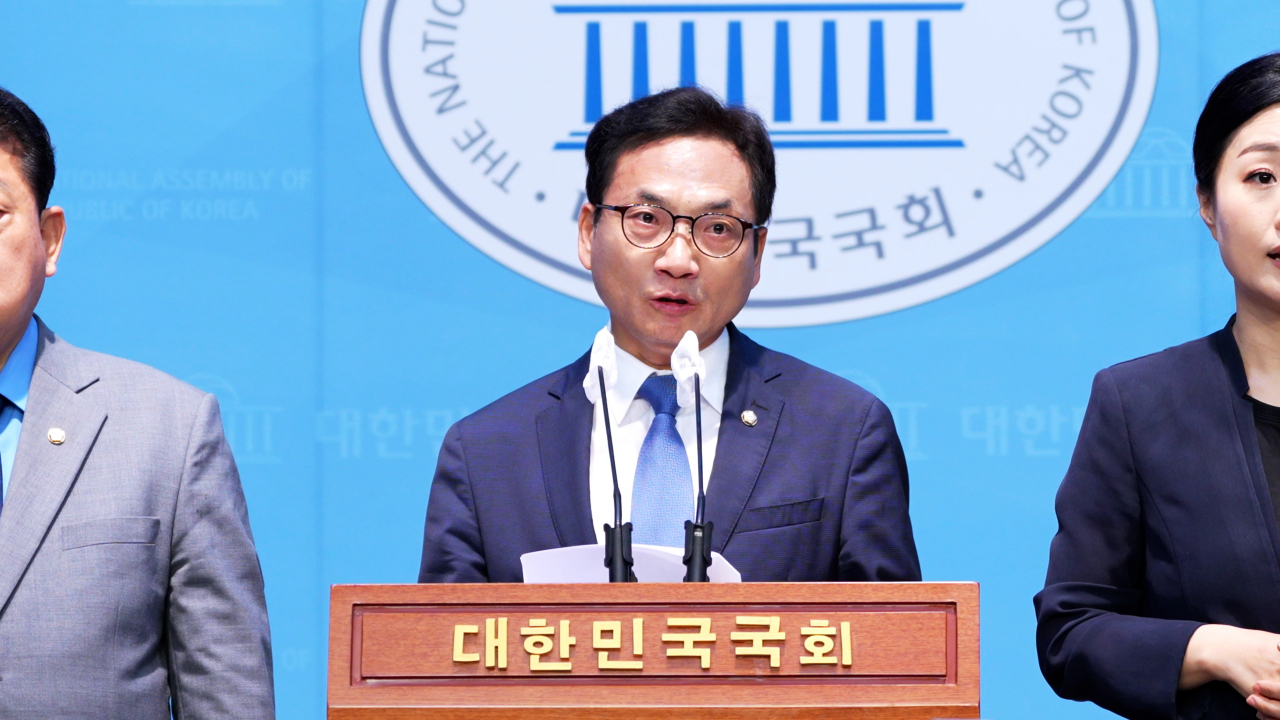 |
Democratic Party of Korea Rep. Park Sun-won (Park’s office) |
South Korea’s once prestigious military academies are fast losing appeal for potential candidates, with about two in three applicants dropping out despite qualifying for final interviews this year.
Despite an increase in applicants to academies of all three armed services over the first three years of Yoon Suk Yeol’s administration in 2022-24, the steep rise in dropout rates during the admissions process reveals the underlying challenges the South Korean military faces recruiting for its officer class.
According to Ministry of National Defense data submitted to Rep. Park Sun-won, this year the Korea Military Academy for training army officer cadets saw less than a quarter of its eligible applicants show up for interviews, the final stage before they can be admitted.
Out of 8,916 total applicants, the Academy called in 3,471 who passed the exams for interviews. Only 780 or 22.5 percent showed up, marking a sharp decline from the previous years.
By comparison in 2023, 33.6 percent of eligible applicants to the Academy came to interviews. In 2022, 39.9 percent did.
Over the same period, the Naval Academy saw a similar decline with just 27.6 percent of applicants who qualified for interviews turning up this year. In 2023, the rate was 39.6 percent, which was already a decrease from 2022’s 41.9 percent.
For the Air Force Academy, the number of applicants who came in for interviews amounted to 26.8 percent this year. In 2023 it was 49.5 percent and in 2022, 51.1 percent.
“Getting into any of the three military academies used to be a huge honor in Korean society. Their fall is an alarming sign of our military’s worsening recruitment crises,” Park told The Korea Herald.
The Korea Military Academy in particular is the alma mater of numerous political elites including two former presidents, Chun Doo-hwan and Roh Tae-woo.
Fewer eligible applicants committing to the rest of the admissions process after already passing the highly competitive exams is a trend that began after the Yoon Suk Yeol administration took office, according to the lawmaker.
The final year Yoon’s predecessor Moon Jae-in was in office in 2021, the Korea Military Academy had an applicant turnout rate of 41.7 percent. For the Naval Academy the rate was 40 percent and the Air Force Academy, 52.9 percent.
Park said this was attributable to the Yoon administration’s push to raise the wage of soldiers conscripted for service while the pay for junior ranking officers remained stagnant.
“While the salaries of conscripts have increased drastically, those for officers failed to keep up. Low morale is being reported among junior-ranking officers who are getting paid nearly the same as soldiers,” he said.
“Without improving pay and treatment of the senior ranks of the military, we are not going to be able to attract more qualified candidates.”







